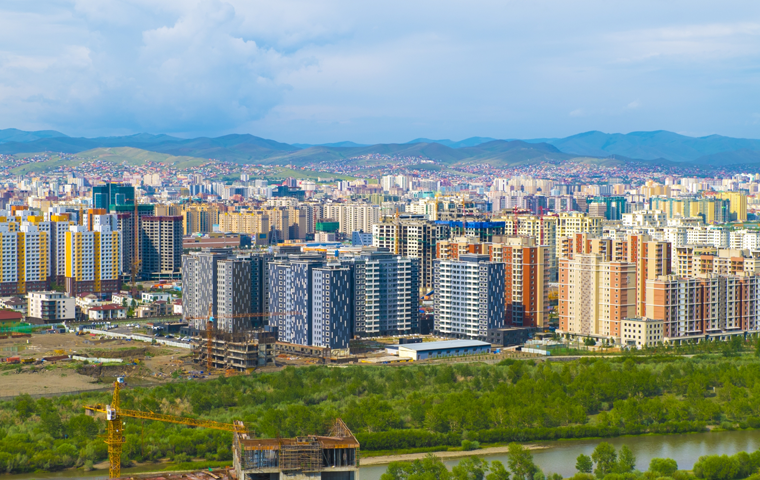The Delusional Sense of Crisis and “Solidarity”: Can Xi Face Real-World Challenges? (#2)
Related Articles

Continued from #1
The Outlook on External Policies and Japan-China Relations
Statements on foreign policy in Xi’s speech were mostly filled with the conventional phrases: the Five Principles of Peaceful Coexistence and Independence and Initiative from the Mao Zedong/Deng Xiaoping era, Hu Jintao’s periphery diplomacy, a new type of international relations, which has been advocated under Xi’s rule, the international system with the United Nations at its core, international relations based on the UN Charter, and building a human community with a shared future. The “hiding and biding” strategy became “actively accomplishing something” under Xi’s leadership, but obviously, the phrase is not included in the recent speech. The phrase “new type of great power relations,” which Xi favored in the past, is no longer used in speeches. This means the phrase is now irrelevant in the U.S. and other relations. However, he states, “China works to enhance coordination and positive interaction with other major countries to build major-country relations featuring peaceful coexistence, overall stability, and balanced development.”
In its relations with Washington, Beijing needs to compete without clashing, while cooperating at times. In rhetoric, the two countries have common ground. Yet, the U.S. has practically scrapped the engagement policy. So, although it may try to bring China into the existing order, it will not provide incentives like when negotiating the World Trade Organization (WTO) membership.
In his speech, without naming the U.S., Xi said, “China stands firmly against all forms of hegemonism and power politics, the Cold War mentality, interference in other countries’ internal affairs, and double standards.” Since Xi’s first term, Beijing has stated building a new type of international relations based on the UN Charter and international law, while opposing security networks centering on the U.S., and not accepting Western values such as democracy. This policy is likely to remain unchanged in the future.
On the economic side, emphasis is placed on “common” for common prosperity and “domestic” for dual circulation, while “promoting high-standard opening up” is also listed as an objective. However, what is mentioned are not Deng Xiaoping’s reform and opening up policy, but “leverage the strengths of China’s enormous market, attract global resources,” “foster a world-class business environment.” and “expand the globally oriented network of high-standard free trade areas.” At the end, it states to “deeply involve ourselves in the global industrial division of labor and cooperation, and endeavor to preserve the diversity and stability of the international economic landscape and economic and trade relations.” Yet, the majority is about domestic matters, focusing on heightening the quality and level of the domestic market, and maintaining security, while connecting with the world.
As Relations Sour, Japan Should Set Base for China Policy
Relations with Japan also come under this base of foreign policy. Of course, this is just officialese, and they will probably be tweaked to match actual situations. But I guess we could come up with the points below.
First, in the current climate, relations with great powers can no longer be steered with the former “new type of great power relations.” In part, Beijing seems to consider Japan as a “great power” too, which means it will pursue “peaceful coexistence, overall stability, and balanced development” with Japan. Therefore, the Japan-China summit and other opportunities for dialogue will probably be available.
Yet, Beijing “opposes” the Japan-U.S. security arrangements in the first place and considers Quad and others as the Cold War mentality. As Japan-Russia relations become increasingly unstable, China is engaging in more military activities with Russia near Japanese waters. Obviously, China Coast Guard activities are increasing around the Senkaku Islands. Such behavior will continue and intensify. Regarding Taiwan, the term “interference by outside forces” includes Japan, and Beijing is extremely sensitive to Japanese involvement with “separatists seeking Taiwan independence.” So, Beijing’s pressure on Japan will further increase in this aspect as well.

Though the economy is a major issue for China, with its economic power now far exceeding Japan, China itself is no longer so keen on economic relations with developed countries. Concerning economic security, not only the U.S. but the Chinese side has also brought up the issue, and both are demanding Japan to adapt or respond to economic security measures. In relation to the Taiwan issue, Beijing could impose sanctions on Japanese companies that have deep ties with Taiwan while also operating plants in China or make them subject to extraterritorial application of the law. Also, trade “sanctions” previously imposed on South Korea, Taiwan, and Australia, could be directed towards Japan upon some incident. Whether Japan could aptly control such economic security and maintain the existing supply chains and trade relations and make the economy as the foundation of Japan-China relations will be the challenge.
That China is tightening thought and administrative controls on intellectuals within China, arming especially youths with CCP logic, and strengthening solidarity of the Chinese nation, will affect Japan-China relations. Intellectual and cultural exchanges between the two countries could be restrained and cast a dark shadow over youth exchanges which were finally receiving attention. We also need to keep in mind that administrative control of students studying abroad and maneuvering on overseas Chinese could intensify.
Summing these together, Japan will need the following policies in relations with China. First, clarify the foundation of the policies towards China. Are we going to invite China into the existing order by enticing it with incentives like the U.S., or drop it entirely? In Japan, people point out the Chinese threat, but hardly discuss where to base our policy on China.
Second, since China is increasing military and security activities around Japan in various aspects, Japan needs to enhance its comprehensive deterrent capacity. However, China is a neighboring country, and we need to reconfirm the details of the 1978 Japan-China Peace and Friendship Treaty to evade war.
Third, Japan should manage economic security appropriately, and while avoiding over dependence on China, it should maintain economic relations with China so as not to negatively impact the Japanese economy.
Fourth, Japan should define the situation of Taiwan that best serves its national interest, and to attain that state, consider and implement Japan-Taiwan cooperation to deal with the Chinese policies currently enforced on Taiwan.
Fifth, while eyeing the thought control exercised on Chinese youths, Japan should promote youth and various other exchanges with China. Although the effectiveness is uncertain, having such activities seems better than nothing.
This is a translation of the Japanese article published in vol. 76 (Nov./Dec. 2022) of Gaiko (Diplomacy) magazine.
Shin Kawashima earned a Ph.D. in 1997 from the Graduate School of Humanities and Sociology, the University of Tokyo. He specializes in Chinese political and diplomatic history and East Asian international relations history. After serving as an associate professor at Hokkaido University, he is currently a professor at the University of Tokyo. He is the author of Chugoku no furontia [Chinese Frontier] and co-author and co-editor of Bunka reisen to chi no tenkai [Cultural Cold War and Expansion of Expertise], Shu Kinpei no chugoku [Xi Jinping’s China], and others.




